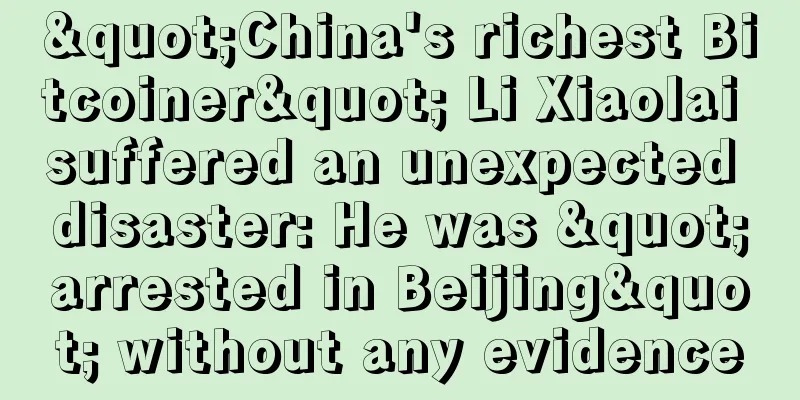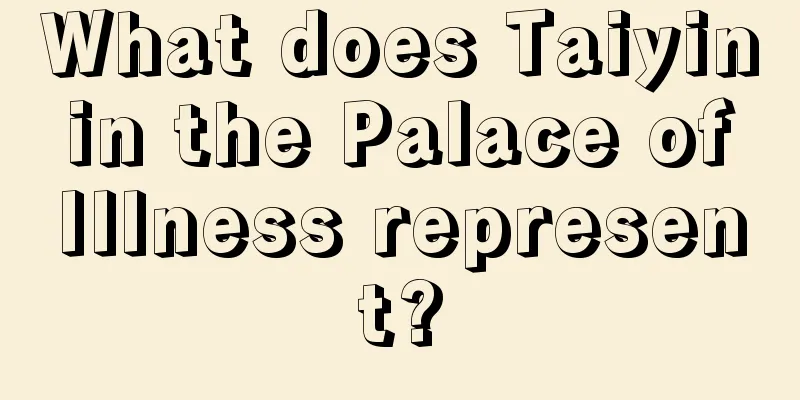"China's richest Bitcoiner" Li Xiaolai suffered an unexpected disaster: He was "arrested in Beijing" without any evidence

As multiple departments in China join forces to crack down on the black industry of blockchain concept, Li Xiaolai, who claims to be "China's richest Bitcoin man", has been accused of fake news. On Monday, January 15, Beijing time, news of Li Xiaolai being arrested in Beijing spread online. As shown in the following screenshot, according to rumors, the Beijing police Weibo account "Beijing Ping An" posted a Weibo at 19:15 on the same day, saying
However, Wall Street Journal checked the Weibo post released by "Beijing Ping An" and found that the content in the screenshot did not appear around 7 p.m. on the 15th. Afterwards, Li Xiaolai himself also posted the word "rumor" on his WeChat Moments to refute the rumor and respond to the above online news. The following screenshot of Li Xiaolai's WeChat Moments comes from Sun Cheng, the all-weather technology writer of Wall Street Journal. Li Xiaolai once announced to the media that his Bitcoin assets were "six figures". Before China stopped ICO token financing, he had participated in some ICO projects. The Wall Street Journal's all-weather technology article "Once ICO is banned, who else will be hurt besides Xue Manzi and Li Xiaolai?" used the following table to show some of the projects he participated in. The online news on the 15th of this month made Li Xiaolai bear the unwarranted stigma of being arrested for disguised illegal fundraising. It also reflects from one aspect the recent strict regulatory situation of the Chinese government to crack down on illegal activities using tokens, virtual currencies and other means. On the afternoon of the 15th, according to CCTV reports, the Ministry of Public Security, the Supreme People's Procuratorate, the Supreme People's Court, the Ministry of Industry and Information Technology, the People's Bank of China and other departments announced that they will adopt a joint governance model, work with more government departments and enterprises, increase efforts to combat the online black industry chain, and jointly build a "cybersecurity community." The report quoted Li Xuyang, head of Tencent Security Anti-Fraud Lab, as saying that they had discovered more than 2,000 types of tokens that had been created using the so-called blockchain concept, and that there were more than 3,000 pyramid schemes. This type of crime was very serious and involved huge amounts of money, and was extremely harmful. Also on the 15th, Bloomberg reported that the Chinese government plans to block all domestic access to "self-made and offshore centralized trading platforms" and will also take targeted measures against individuals and companies that provide market making, settlement and clearing services in centralized trading. A subsequent article in Wall Street Journal mentioned that in September last year, after the central bank severely stopped ICO financing, China completely shut down all domestic Bitcoin exchanges. RMB-denominated transactions shrank significantly, but 77% of computing power was still within China. The article stated that Bitcoin speculators in China have turned to over-the-counter P2P (person-to-person) transactions, but some people still set up their own platforms or rely on existing platforms and corporate entities overseas to provide market making and settlement services. Mining Network www.wabi.com In-depth digital currency & mining |
<<: South Korean government clarifies: No Bitcoin ban
>>: Japan's first virtual currency girl idol group completed its debut: the scene was hot
Recommend
Auxiliary lines in the palm - rising lines
Auxiliary lines in the palm - rising lines The so...
Blockchain company Storj receives $3 million in seed round funding, targeting enterprise cloud
Storj, which started out as a blockchain-powered ...
How to tell if a man is unlucky in marriage
As the name suggests, a man who is unlucky with h...
Foot fortune telling: your fortune can be seen from your feet
Foot fortune telling: your fortune can be seen fr...
Network Engineer: Anti-ASIC mining may be wrong, future IP protocol upgrades will be beneficial to large block expansion
"Master, many small mining coins are very po...
Google search rankings: "Bitcoin" searches surpass "stocks" in July
According to trustnodes, according to Google sear...
What are the characteristics of a woman with an ugly face?
People’s faces have different characteristics, bu...
Bitcoin fell for eight consecutive days: $200 million long contracts were "exploded", and exchanges encountered a crisis of trust in currency withdrawals
Since September, the global capital market has be...
Is it a sign of bad luck for a woman to have reverse-growing eyebrows?
It can be said that a face that brings bad luck t...
The most auspicious women for husbands, marrying them will make you rich
Whether a woman can bring good luck to her husban...
Are men with sunken temples more likely to cheat?
For some people, cheating is an incredible thing,...
What kind of face will not pay attention to unfamiliar neighbors?
Sometimes, people tend to be a little wary of unf...
Bitcoin: Anchor of Trust in the Ocean of Blockchain
Bitcoin possesses numerous properties, such as tr...
What does Tianfu represent in Fude Palace?
Tianfu Star is the star that represents wealth, a...
Why do people with thin, long and blue eyebrows have good fortune?
For some people, the shape of their eyebrows may ...









